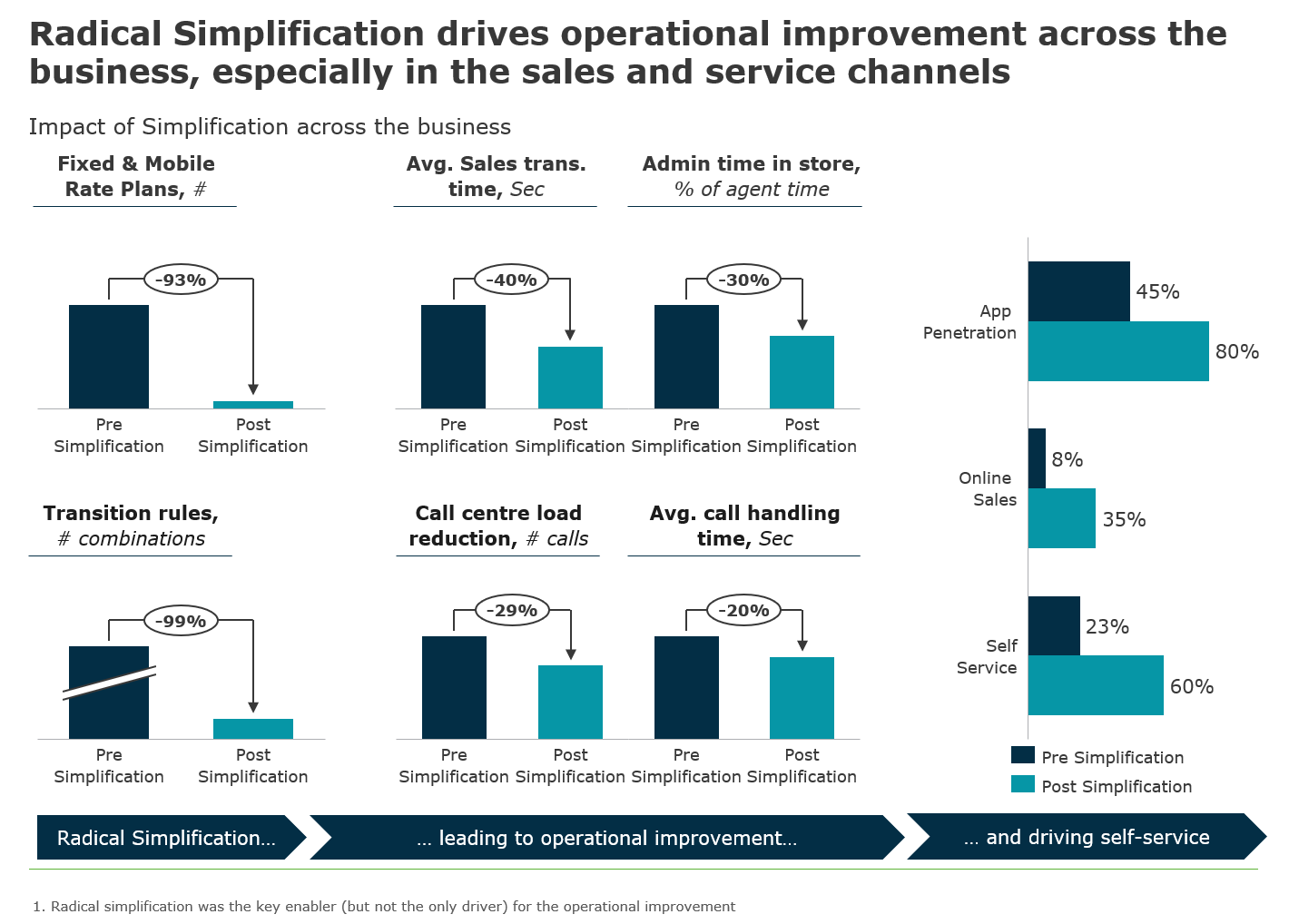In my previous post I talked about the cost of complexity and the challenges it creates within a Telco portfolio. In this article, I want to explore the benefits a radically simplified portfolio can drive across the business.
Customer interaction
The most important benefit from simplification is an enhanced customer experience. A radically simplified portfolio leads to shorter sales and service times across channels. Customers also have their services activated much quicker, and tend to see fewer or no billing errors.
A simplified portfolio also drives increased self-service adoption. Customers no longer need to visit a store or call up the call centre for their sales or service transactions. Telcos can recommend the best offer for the customer in the first instance, thus reducing the iterations and improving the overall customer experience. For customers that do visit the store or call centre, a simplified portfolio helps reduce the sales transaction time by up to 40% and the call centre call handling times by ~20% given the much simpler portfolio the agents need to navigate when interacting with the customer.
Product and marketing
A radically simpler portfolio also enables Telcos to be more nimble in the market place, with a much shorter lead time to launch new products (shorter development and testing cycles). This significantly reduces the cost of product development. Fewer tariffs and products also means ongoing product management is much more efficient and optimised.
In addition, complexity in the portfolio exponentially increases the spend on marketing as telcos desperately try to communicate a plethora of tariffs to their consumers, often adding to customer confusion.
Technology
And finally, the hidden cost of complexity is in the technology landscape. Telcos have to retain several legacy systems to support old tariffs, with some of the systems being end-of-life or out of support, increasing business risk. Radical simplification allows Telcos to address these issues in their IT landscape. They can dispense with legacy systems, reduce license and infrastructure costs, and ensure the technology backbone is more modular and scalable. This also allows the Telcos to explore alternate technology options (e.g. Commercial Off the shelf Technologies) to further optimise costs.
Operational impact of Radical Simplification

Benefits across business functional areas

The key point to note is that these benefits can only be delivered if simplification is radical. Pruning a few tariffs, promo codes and transition rules will not have the desired benefits across the business, often leaving management frustrated.
In my final post on this topic, I will explore some of the challenges our clients have faced when trying to drive radical simplification, and highlight some of the best practices that Telcos should adopt.

